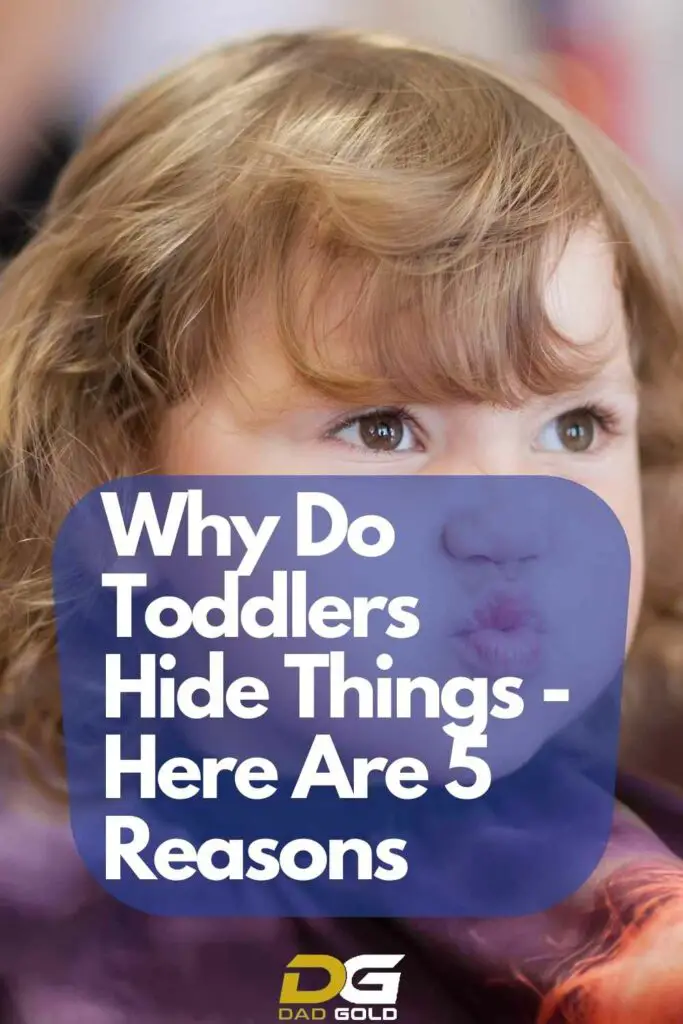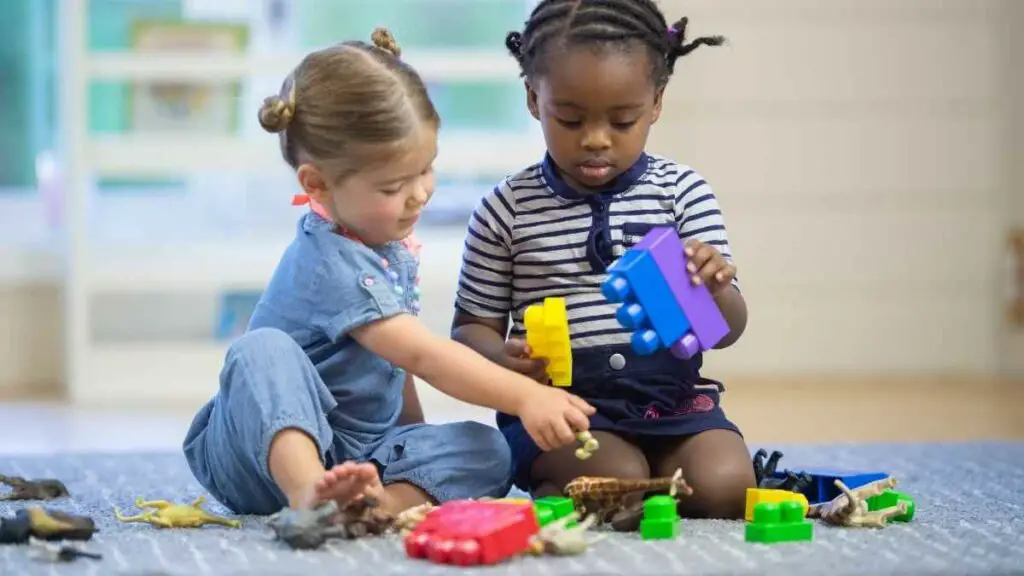Hide and seek can be a fun game for your toddler, but not when you’re running late and looking for your keys.
Your nerves will get more frazzled as your toddler giggles away, waiting for mommy or daddy to find them so they can start the game again.
Trust that your toddler knows exactly what they are doing when hiding things, but there are many different reasons for doing it.
Why do toddlers hide things? Here are five of the most common reasons.
Once you understand the reasoning behind this behavior, you can implement safeguards to stop your toddler from hiding things.

5 Reasons Why Toddlers Hide Things
One minute, you’re using a spoon to stir your coffee; the next, it’s nowhere to be found. Or maybe you set your keys down on the counter, only to turn around and see them mysteriously hidden behind the couch cushions.
So why do toddlers do this? Well, it turns out that hiding things is just a normal part of child development. As little ones gain a sense of independence and autonomy, they may start to hide things to explore and discover new objects and their properties.
It’s also a way for toddlers to test their abilities and see if they can find the hidden object again.
-

Bold Male Pride – Baseball Trucker Cap Celebrating Masculinity
£18.00 Select options This product has multiple variants. The options may be chosen on the product page -

Dad Bod Appreciation Gift Mug
£14.00 Add to cart -

Dad Bod, Bad Jokes Structured Baseball Cap
£22.00 Select options This product has multiple variants. The options may be chosen on the product page
Let’s take a look at the 5 most likely reasons:
They Think it’s a Game

If you regularly play hide-and-go-seek or peek-a-boo with your toddler, they may have learned that hiding things is a game and enjoyable when you find them.
Playing games mean you are a good mom or dad to your toddler, doesn’t it?
Your toddler may start to leap from hiding themselves to hiding things to see if they will get the same reaction.
This is completely normal and a natural logic leap, so try not to be too hard on your toddler. Instead, explain to them that it’s not a game and they need to return what they have hidden.
It may take some coaxing, but your toddler should give whatever they’ve hidden back with the right incentive.
They are Claiming Ownership

Mine is likely right up there with no as your toddler’s favorite words, so when they start to steal things away, this is a way that they establish ownership.
They don’t want to share the object they are playing with or using, so they hide it so no one else can have it.
This is selfish behavior but one that many parents can understand. You may need to explain that a remote or cell phone is not a toy, or you can get toy versions so your toddler can play with them.
It’s about distinguishing what is appropriate for your toddler and sticking to those boundaries.
They are Ashamed

If your toddler has done something wrong, they may hide it from you. They want to avoid getting in trouble, so they think that if you don’t see the broken cup or ripped shirt, it doesn’t exist.
You will never find out, and they won’t have to explain what happened.
This avoidant behavior should be addressed lest they begin to hide more important things from you later on. It’s important not to approach them with anger, as this could lead to a vicious cycle.
Instead, listen with understanding and explain how to prevent the action and consequence in the future.
They are Scared

Hand in hand with shame is fear. Your toddler may be hiding things because they are afraid of your reaction.
This is especially true if you use a lot of negative reinforcement to punish your child when they do something wrong. They can learn early on to fear behaviors and tailor their actions accordingly.
Similarly, your toddler could be afraid of something, and that’s why they are hiding it. Fear can be a strong motivator in children, so it’s essential not to be too harsh on your child.
They are sensitive and learn more about being a grown-up from you daily.
They Want Attention

Your child can also be hiding things because they want your attention. Do you notice that they snatch your phone because you’re on social media?
Are your keys missing because they don’t want you to leave? Is something you are doing to prompt this hiding behavior from your toddler?
You can’t always avoid it, but you can prevent them from hiding things when you are present and in the moment with them.
This will help them to feel seen, and this can stop them from hiding things that are important to you.
How to Stop Your Toddler from Hiding Things

Now that you understand why your toddler is hiding things, you can take steps to prevent them from doing it, saving you time and energy as you no longer have to look for the essential items in your life.
Move Them Out of Reach
This should be pretty obvious, but your toddler isn’t that tall, so if you’re worried about them getting their hands on something, you should keep it out of reach.
This should always be true of medicine, weapons, and other things that can harm your child; however, if they are grabbing crayons and drawing on the walls, move them out of reach and out of sight.
Remember that your child may lack fear and see ways to climb to achieve their goals.
Make sure that whatever you are moving is away from counters, chairs, and shelves they can climb on for your child’s safety.
Don’t Give Them the Attention They Seek
This can be hard, but if your child is hiding things to get attention, it’s important not to give your attention to them. This will reinforce the behavior.
Instead, send them to time out if they refuse to return it. They will quickly learn that hiding things will lead them farther away from people’s attention and stop the behavior.
Too, even yelling can be a form of attention, so keep your reactions at a minimum. If your child no longer gets amusement from hiding things, they will stop doing them.
Reward Them for Giving It Back
Instead of yelling, you can tell your child they are a very good hider, and you would like to learn where they hid it. Offer a small reward like a cookie or a sticker to help encourage their compliance.
If you approach the situation calmly and with interest instead of harshly punished, your child will be more likely to share their secrets with pride to make you happy.
Conclusion
One of the most annoying things children and toddlers can do is hide stuff. Important things. Things like car keys, house keys, and banking cards.
One final thing: toddlers are notorious mimics. They observe and imitate the behavior of those around them, and hiding things is no exception. So if you’re constantly misplacing your keys or wallet, it could be that your toddler is simply trying to mimic your behavior. (Hey, at least they’re paying attention!)
Of course, it’s important to remember that hiding things can also be a way for toddlers to express emotions such as fear, insecurity, or frustration. If you notice your little one hiding things more frequently or in response to certain triggers, it may be worth checking in and providing a supportive and understanding environment.
You need to figure out why, do something to try and stop it from happening while they go through this annoying phase, and hope they grow out of it damn quickly.
Before you know it, they will move on to something equally annoying, like trying to escape the house daily. I’ve also been through that!
Good luck.

